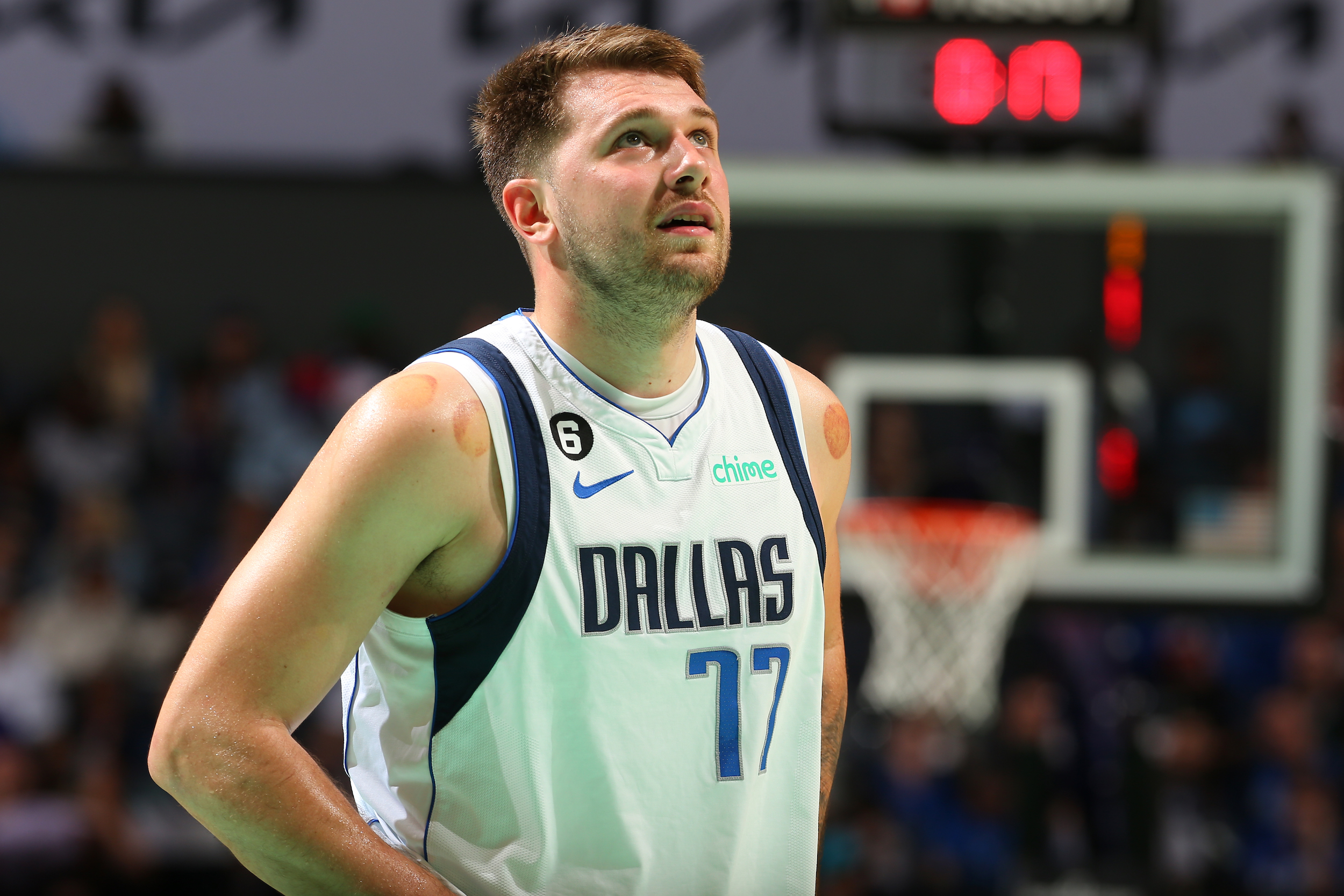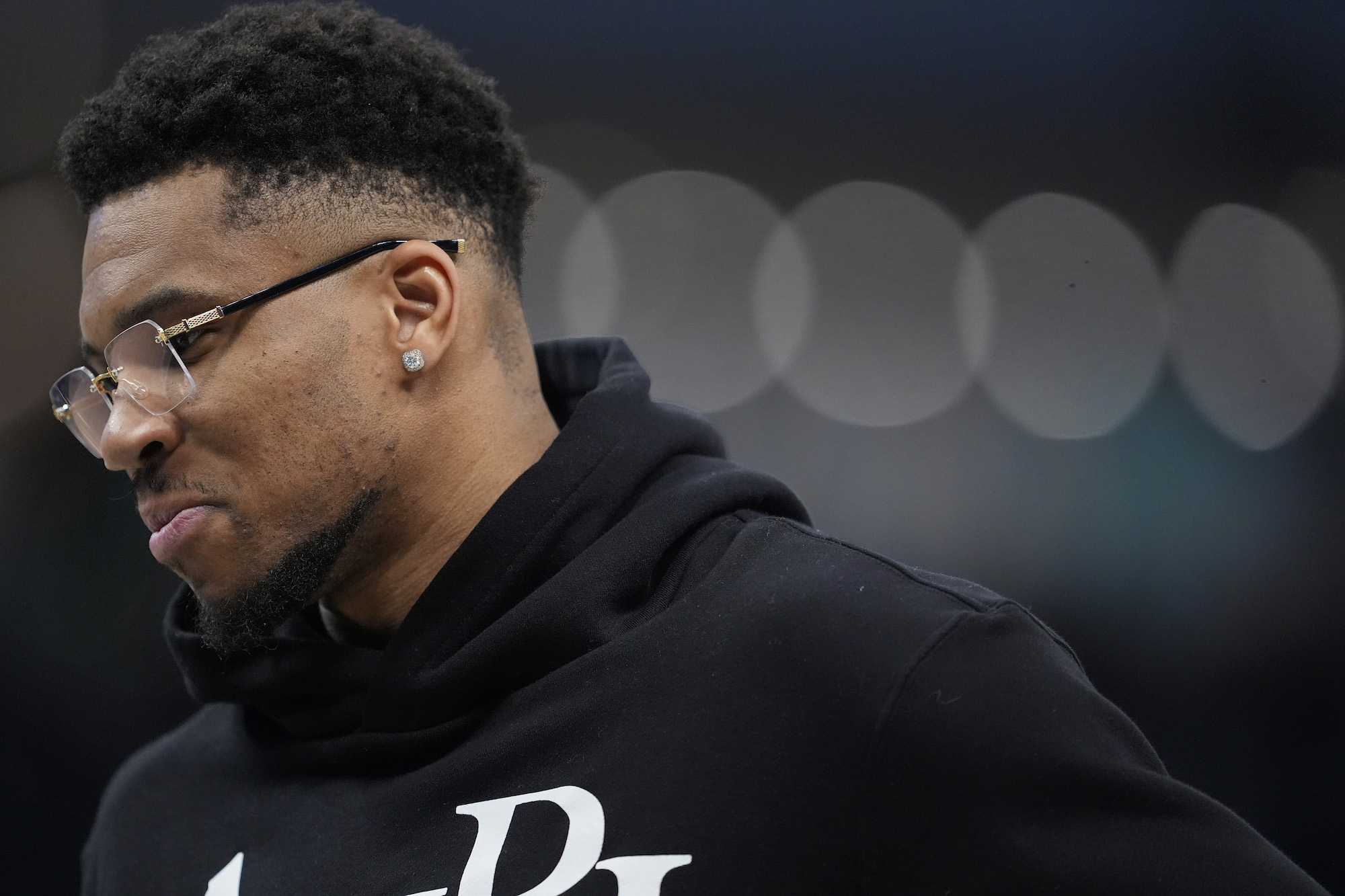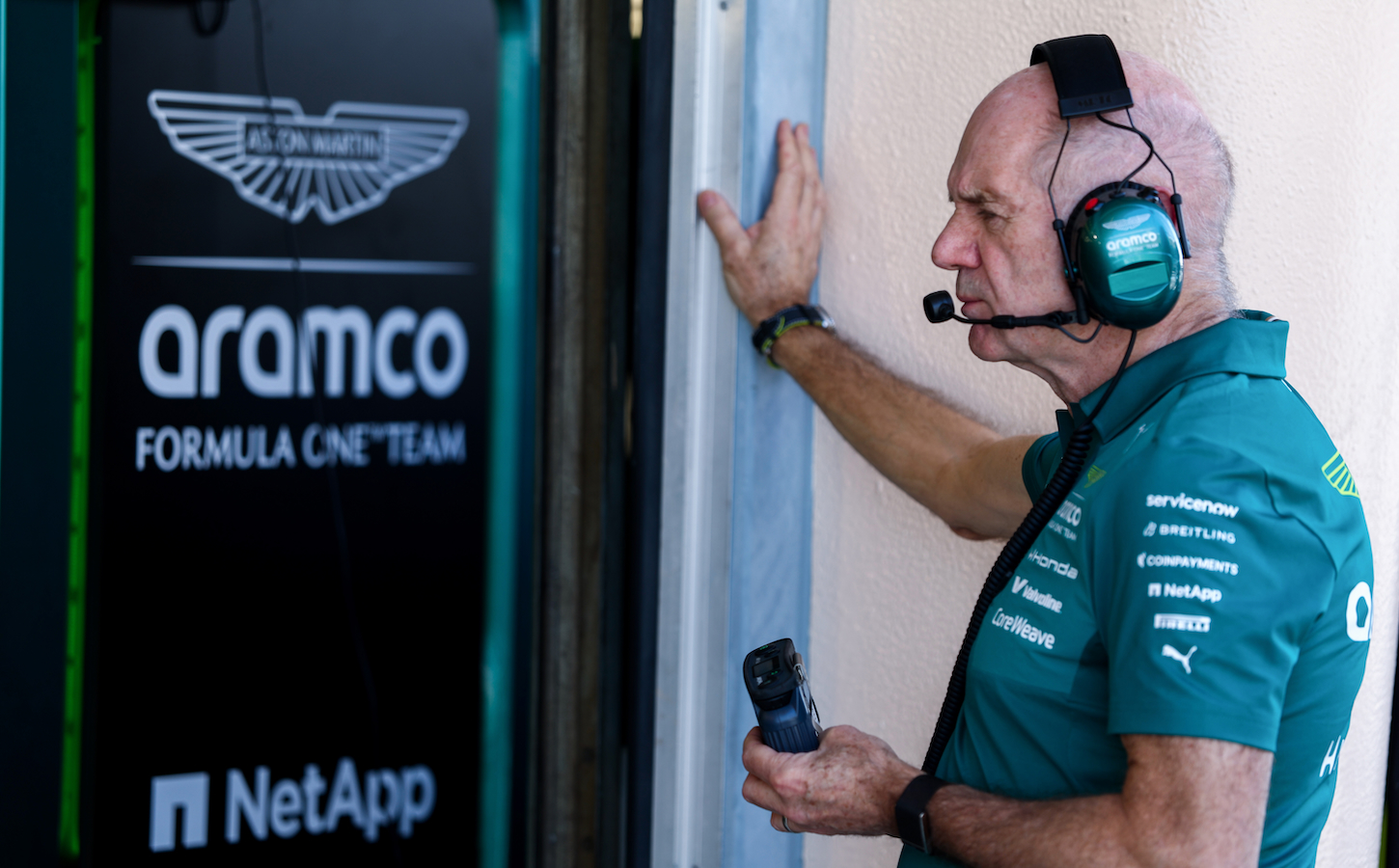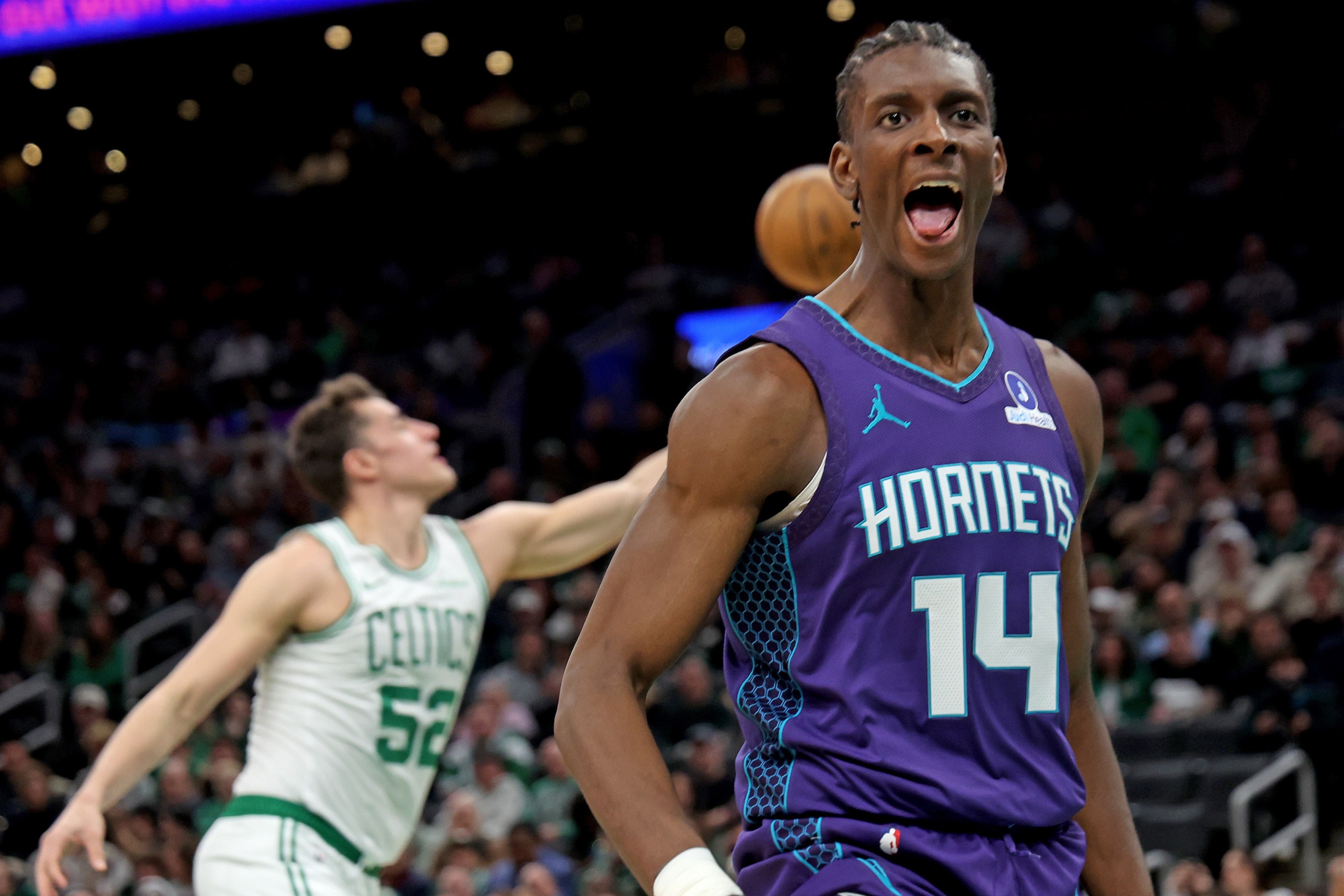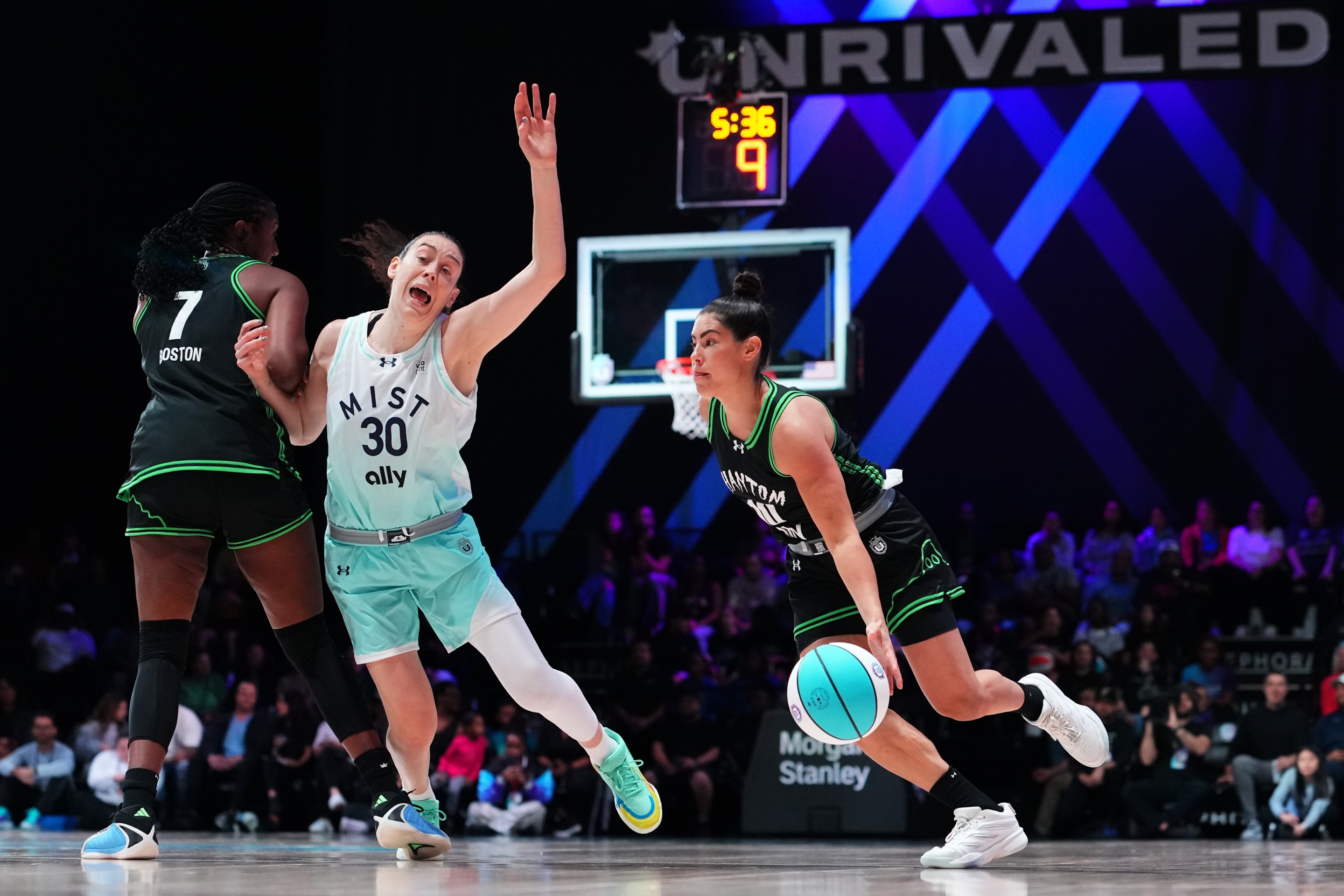The Dallas Mavericks, circling the drain after a catastrophic weekend home-and-home sweep at the hands of the insanely bad and depressing Charlotte Hornets, are likely to miss the playoffs. The Mavs are now 11th in the Western Conference with seven games left to play; FiveThirtyEight gives them just a 26 percent chance of crawling back over the line. Their next four games are on the road, where they are 5–11 since the Feb. 6 trade deadline. The good luck and timely heroics that kept their nose above .500 before the big all-in trade for Kyrie Irving have run out. When you lose consecutive games to the Hornets, truly any depth of humiliation is within reach.
The vibes are supremely shitty; the whole scene reeks of terminal demoralization. Home fans booed lustily as the sleepwalking Mavericks fell behind by 21 points Friday. Head coach Jason Kidd, smirking dyspeptically like a man who senses it is time to start disavowing any responsibility for this mess, called his players' effort in that loss "dogshit." Luka Doncic suggested in the loser's locker room that he has lost the joy of playing basketball, which is precisely how anyone should feel after getting crushed by a team that gives a team-high 37 minutes to Svi Mykhailiuk. "I think you can see it with me on the court," a somber and defeated Doncic explained after the game. "I used to have really fun, smiling on court, but it's just been so frustrating for a lot of reasons, not just basketball."
Then Sunday the Mavericks moped out onto the floor in Charlotte and fell behind by 17 points in the first half. A miserable Doncic, now physically incapable of not complaining to a nearby referee after literally anything goes wrong, picked up a 16th technical foul on the season, which should have triggered an automatic suspension except that the NBA favored him with a dubious ruling and rescinded it. The Mavs lost the game when some characteristically chaotic off-ball defense allowed the Hornets to pull off a dagger alley-oop from P.J. Washington to Dennis Smith Jr., which of course sent shrieking Hornets play-by-play maniac Eric Collins into a fit of hysterics:
[Highlights] Dennis Smith Jr. with an alley-oop dunk in the clutch against the team that gave up on him! Giving the Hornets 5 points lead, with one minute remaining in the game! With many replays! The Hornets commentator goes wild! pic.twitter.com/EMQwU9FgxO
— hoops bot (@hoops_bot) March 26, 2023
It's tempting—oh so tempting—to suggest that the Mavericks are in the toilet today because of their acquisition of Kyrie Irving, who was a severe headache for his last team. Dallas has won just about 60 percent of their regular season games over the last three seasons, and made the conference finals just last season; that plus the density of the Western Conference's middle class this season—the Mavericks were at one point fourth in the West, like just about every other team in the conference—might've left you with the impression, here and there, that the 2022–23 Mavs have at any point been good. They have not. They peaked at six games over .500 back in early January after a particularly soft stretch of schedule that saw them play the dreadful Rockets three times in 11 days, but otherwise they have been the very picture of mediocrity.
Dallas made the Kyrie Irving trade—sending out two valuable role-players and some valuable future draft capital in the deal—exactly because their season has been a big fat dud, right from the beginning. But there has always been the question of how, precisely, Irving would improve the Mavs. What has ailed them this season has been poor defense and shitty rebounding, and those are two areas where Irving is no help at all. The Mavericks were 24th in defense and 29th in rebound rate before the trade, and after the trade they've only gotten worse, allowing an extra three points per hundred possessions on defense and grabbing an even lower percentage of available rebounds. In order for this to work—in order for the trade to take the Mavs from mediocre to great without shoring up the team's glaring weaknesses—the Irving-Doncic pairing would need to be a towering offensive powerhouse, and Doncic and Irving would need to be able to keep the ship afloat taking shifts with severely underpowered bench lineups. And, crucially, both guys would need to stay healthy.
The Irving-Doncic pairing is, in fact, a towering offensive powerhouse. And in fact Doncic and Irving have capably carried Mavericks lineups featuring assorted bozos. But they haven't been healthy—Irving has missed four of Dallas's last eight games, and Doncic has missed five—and with a roster overhaul as dramatic as this one, and on the condensed timeline of a post-deadline sprint for the playoffs, the loss of opportunities to figure out how to make the new arrangement sing is deadly.
Consider: Prior to the trade, the Mavericks were uncommonly successful in clutch games (defined by the NBA as a game that is within five points inside of the game's final five minutes), while having played a league-high 34 of them. A whopping 16 of the 21 games they've played since the trade have also been decided in the final five minutes; in those games they are a crummy 5–11. In general you want to play fewer clutch games, because you are more regularly kicking the shit out of your opponents, but also because clutch success is thought to be largely a crapshoot. A lot of luck goes into it. The part that isn't luck includes some amount of cool-headedness, which where it is not some freakish preternatural trait is borne out of lineup cohesion, the extrasensory connection between teammates that puts defenders on a string and makes it seem like a well-oiled team somehow has more than five players on the court. This clutch cool-headedness is hard to come by even for teams blessed with continuity and with players socked into obvious, natural roles. You would not expect to find it in the first season of a team overhauling its whole deal in order to feature a puny brain-genius of a ball-dominant shot-creator, let alone inside of the first 25 games.
This is a point that Irving has been trying to make as the Mavericks continue to struggle through the final third of this season. "We're still feeling each other out in a way of getting used to each other's efforts and attitudes and temperament," Irving explained after the first Hornets loss. "And that's a real thing. That's a human thing. That's a human element. Whether people believe it in basketball or not, there's a very fine line between winning basketball games and everyone being on the same page and losing basketball games and things splintering and pointing fingers." He's not wrong. Even a team struggling to make sense of its strange new shape might've held the line a little bit better if a couple of supremely ill-timed injuries hadn't interrupted the hunt for chemistry. That Dallas's Kyrie Irving trade hasn't worked out doesn't at all mean that it couldn't work out, or even that it won't. But that it hasn't is, so far, an unmitigated disaster.
The Mavericks now face the ignominy of failing to even qualify for the play-in tournament one season after making the conference finals. And with Irving's contract expiring after the conclusion of this miserable campaign, the only way for Dallas to give the Doncic-Irving pairing a real shake will be by making an expensive long-term commitment to an unreliable and deeply annoying 31-year-old point guard who may or may not work alongside Luka Doncic, who happens to be the face of the franchise. If they walk away from Irving, they've left themselves with something definitively worse than the underpowered supporting cast that so needed an overhaul before the big deadline trade. It's not great.
With this kind of dramatic roster overhaul, timing is everything. Sometimes the big bold move works and a team soars to new heights, and sometimes players get nicked up and things go sideways, and a team finds itself "still feeling each other out" with seven games left on the schedule, no margin for error, and everything to lose.
